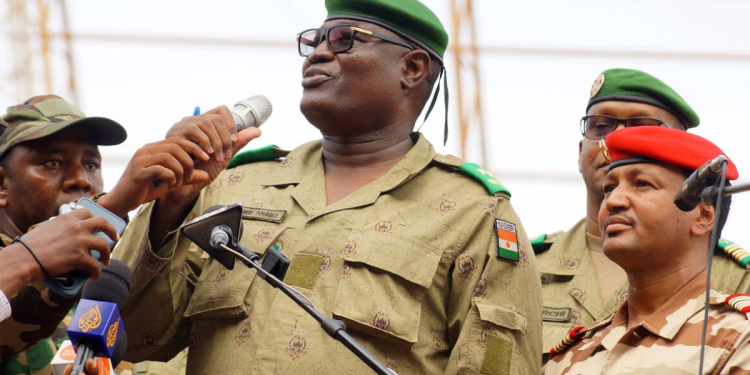A coup d’état occurred in Niger on July 26, 2023, when General Abdourahamane Tchiani, the presidential guard commander, imprisoned President Mohamed Bazoum and declared himself the Head of a new military junta. The presidential guard forces shut down the nation’s borders, halted governmental operations, and imposed a curfew.
This is the fifth coups d’état in the country since it gained independence from France in 1960.
The fragile socioeconomic situation preceding the coup indicates that the country’s weak economy can worsen as a result of sanctions against the coup plotters. This creates harsher realities for Nigeriens. The country has an economic complexity of -1.49 and a trade complexity of -0.62, ranked 139th among 140 countries globally.
While international organisations, especially the ECOWAS, the AU and the UN, and other countries seek to restore the political structure disrupted by the coup, the country will need help to keep up on major socioeconomic fronts.
Increased Hunger
Post coup effect led to the closure of the borders. This limits the entry of people, goods and services into the country.
The land-locked country, which relies on mostly consumable imports, will have a shortage of these commodities due to border closure. Top imports to the country include rice, cars, rolled tobacco, palm oil, vaccines, blood, antisera, toxins, and cultures.
Data shows that 20 per cent of the country’s population already needs food support. Also, 38 per cent of households are moderately experiencing food insecurity, while an additional 32 per cent of the households are slightly vulnerable. This means at least 7 of 10 Nigeriens are facing one form of food insecurity or the other.
With the border closure, goods and services will not enter the country. This will mean the citizens will have no adequate access to food and supplies for their daily needs when the existing ones get exhausted.
Increased Poverty
The poverty rate in Niger might soar above the current realities. At least 43 per cent of Nigeriens live in poverty, surviving on less than $1.9 per day. The situation is worse as 20 per cent of the population cannot meet their basic daily food and nutrition needs.
Nigeriens are mostly rural dwellers; at least 8 of every 10 Nigeriens live in rural areas. An 80 per cent of its population lives in rural areas. This makes primary economic activities a predominant occupation for the citizens.
However, the climate situation in the country makes farming less productive. The country is one of the hottest countries in the world. Exposures to 1.5 times rise in temperature above the global average affects agricultural activities. Inconsistent rainfall patterns and increasing drought compound issues for rural dwellers. All these contribute to the prevailing poverty situation in the country.
The coup and its consequences complicates these situations and limits the country’s chances of forging ahead.
Chances on Development
Niger is ranked as the seventh poorest country in Africa, with a GDP per capita of $1,600. Its income comes from gold mining, radioactive chemicals, and a recent drive toward producing oily seeds.
Real GDP growth is anticipated to be 6.9 per cent in 2023 and to rise to 12.5 per cent in 2024. This results from the beginning of extensive oil exports and production, ongoing donor support, and an economic reform program intended to increase overall productivity and improve economic governance, raising GDP per capita to 15 per cent higher than in 2021.
Though projections as this are not always attained, they give a pointer to the country’s progress.
The coup may increase the level of conflict and violence, especially if the ECOWAS carries through its declaration of military action against the Nigerien junta. This certainly hinders the country’s narrow chances of economic growth and development.
Progress on Education
Inevitably, the country is one of the youngest countries in the world, with a median age of 15.4 years. This shows that over half of its population is under 14.
Niger has seen its school attendance increase from about 11 per cent in 1973 to 66 per cent in 2017. This progress was lost after 2017 due to the inherent crises in the country, as school attendance dropped to 58 percent due to the country’s widespread conflict.
The already existing political conflict, hunger, climate crises, and extreme poverty has seen 579 schools shut down between 2020 and 2021. This affected 53,562 children, with more than 50 per cent between the ages of 7 – 12 out of school and 60 per cent for those between the ages of 13 – 16.
The coup, which has grounded most social and economic activities, will worsen the educational statistics of the country.


